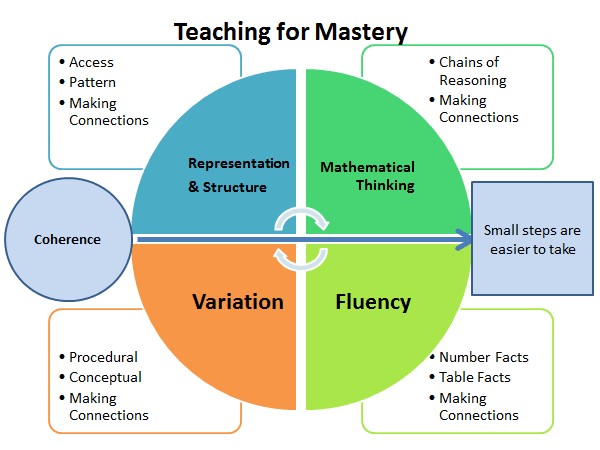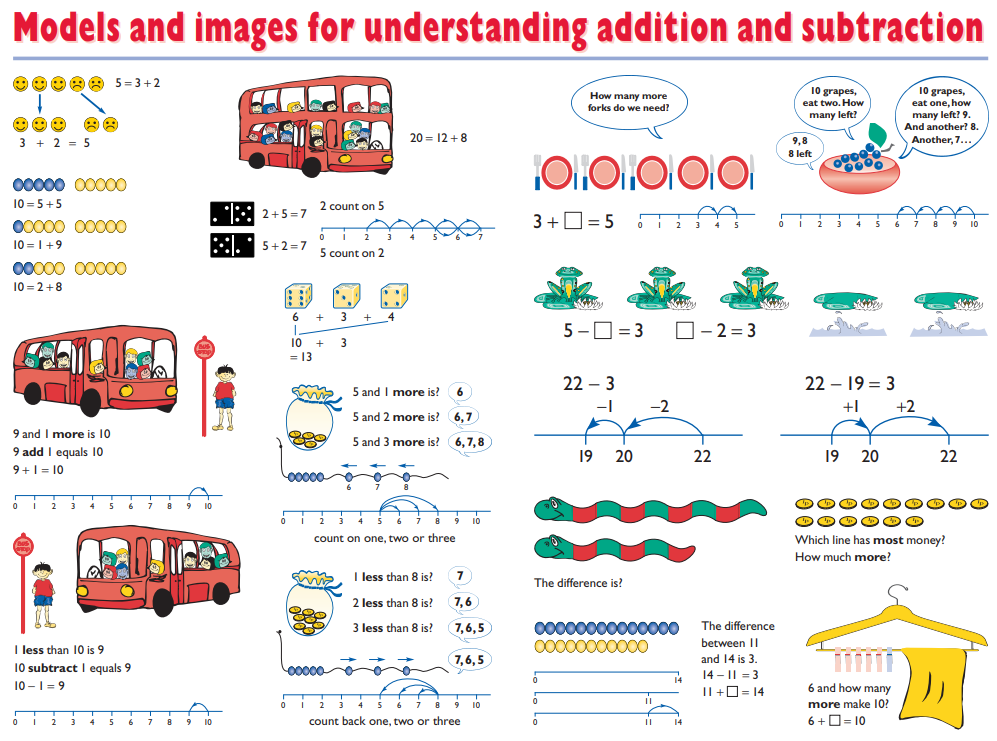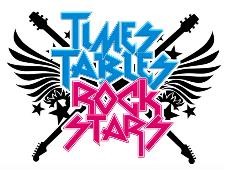Mathematics
At Dennington we are committed to both fostering curiosity and developing fluency in mathematics.
Intent
Mathematics has shaped the course of human history. Just as words are the building blocks of literature, numbers are the language of scientists, architects, engineers and software developers. Without mathematics there would no Internet, skyscrapers, modern medicine or aeroplanes. Moreover, the economies of the world are driven by the complex mathematics of finance and business. Mathematics can be seen everywhere-from the arrangement of flower petals and the navigation systems of the bees that seek them, to the strategies of how to respond to a pandemic! A secure knowledge of mathematics is not only essential for people seeking employment, it is also key to being financially secure and to be able to engage with a modern, data-driven, technical world.
Let me do it. You tell me when you want it and where you want it to land, and I’ll do it backwards and tell you when to take off.
Katherine Johnson, the African American woman whose mathematical calculations helped put the first human on the Moon.
Adults rarely have a neutral view towards mathematics-it could be described as the ‘Marmite’ of school subjects! We aim to challenge this so that in addition to being fluent in mathematics, our children will also develop a positive attitude and sense of curiosity and wonder for this subject that persists throughout their life.
In line with the National Curriculum Objectives for Mathematics, our intent is that all pupils:
- become fluent in the fundamentals of mathematics, including through varied and frequent practice with increasingly complex problems over time, so that pupils develop conceptual understanding and the ability to recall and apply knowledge rapidly and accurately;
- reason mathematically by following a line of enquiry, conjecturing relationships and generalisations, and developing an argument, justification or proof using mathematical language;
- can solve problems by applying their mathematics to a variety of routine and non-routine problems with increasing sophistication, including breaking down problems into a series of simpler steps and persevering in seeking solutions.
Our approach to the teaching of mathematics has been carefully considered and is based on the best practices seen around the world including places such as Shanghai and Singapore. We use a ‘mastery based’ approach that builds sequentially on deep understanding and develops fluency and mathematical reasoning. We have worked with organisations such as the NCETM to develop our expertise in mastery and are currently part of an ongoing project with the Angles Maths Hub to hone our skills further and share best practices with other schools in the All Saints Schools Trust. The main themes which underpin mastery in mathematics are perhaps best described by the diagram below.

Our practice in the classroom is also informed by more generic philosophies that we subscribe to as a school (which overlap with mastery) such as Cognitive Load Theory, Growth Mind Set, and Rosenshine’s Principles.
Implementation
White Rose Mathematics
At Dennington, our children typically study mathematics daily and we use the White Rose Maths Scheme to a high degree of fidelity. We have chosen this approach for the following reasons:
- the programme aligns with our mastery principles;
- White Rose Maths provides a coherent structure and supports teacher subject knowledge;
- the workbooks provide rigour through a consistency of pedagogy, expectations and vocabulary across the school;
- leaders can be confident children are regularly exposed to the models, images and representations consistent with the mastery approach including procedural and conceptual variations and regular opportunities for mathematical reasoning;
- the programme significantly reduces staff workload and pupil ‘admin time’ so that teachers and learners can focus on mathematic concepts and quickly addressing misconceptions.
Maths Meetings
White Rose Maths is taught in blocks which helps children to develop a deep understanding of the concepts being taught. A potential disadvantage of this approach is that the substantial time spans between when concepts are taught could mean that children may forget and become less familiar with some areas of mathematics. To address this, we have introduced maths meetings. These are daily sessions, which are distinct from the timetabled maths lesson. The principles of daily maths meetings are as follows:
- Recap important mathematical knowledge, revise key vocabulary and practice mental/written skills in order to develop fluency.
- Revisit specific areas such as measures, geometry and statistics, which are unlikely to be visited more than once a term or once a year using our mastery curriculum (White Rose).
- Build a classroom culture where knowing and remembering key concepts mathematics is seen as important and is valued.
Manipulatives and the Concrete, Pictorial and Abstract Approach

Manipulatives and visual images are instrumental in providing effective support in the teaching of mathematics through helping to model and explain underlying principles. These are widely used in school, by learners of all ages and abilities often progressing though all three stages within a session. At Dennington these commonly include Numicon, Multilink, Denes, place value counters and number frames although many others are used. Once these models have successfully deepened understanding, children are able to move on with confidence to more abstract approaches such as algorithms.
 Fluent Recall
Fluent Recall
In order to be fluent mathematicians, there is a range of age-related key mathematical facts that children need to be able to recall instantly. These range from numbers bonds to 10 in Year 1, to all multiplication tables up to 12 in Year 4 to decimal equivalents of fractions in Year 6. To help these facts to become embedded, our pupils engage in regular low stakes testing and through engaging with online practice such as Times Tables Rock Stars.
Mathematical Vocabulary
All sessions include explicit reference to key mathematical vocabulary which teachers display prominently in the classroom to aid recall.
Fluency, Reasoning and Problem-Solving and ‘Wild Maths’
Children have regular opportunities for reasoning as part of the work they complete with the White Rose resources. These include a range of contexts in which they apply their mathematical knowledge and skills to solve increasingly complex problems in a systematic and coherent way. To supplement this, each half-term we have at least once ‘Wild Maths’ session in which reasoning becomes the main focus. This will typically involve children explaining, conjecturing and generalising, initially in words but eventually moving towards symbols in order to develop algebraic thinking (with older children). Furthermore, children will be encouraged to develop a disciplined approach to problem-solving that uses domain-specific, systematic strategies rather than resorting to guesswork or unstructured trial and error.
EYFS
At Dennington we understand the importance of early encounters maths and our staff provide a range of both adult and child-initiated activities that provide a positive start with strong foundation in pattern seeking and the concept of number. Counting is particularly important in the EYFS, and through this, children learn how each number refers to the quantity of things it represents e.g. the ‘threeness’ of three. Concrete manipulatives are a key resource for scaffolding learning in Reception and our resource include of a wide range of interesting items including natural objects for counting and representing. The two key Early Learning Goals for mathematics are:
- Number: Number composition, subitising, recall of bonds to 5 and 10 and doubling
- Numerical Pattern: Verbally count beyond 20, compare qualities, explore and represent patterns.
Curriculum Impact
Assessment
Teachers check for understanding in each session and quickly identify those children in need of additional teaching. We find that the most powerful feedback is given to children verbally during the lesson so that children can correct their work at the time. Self and peer assessment are also used when appropriate, although teachers will oversee this and acknowledge the work. If necessary teachers will adapt their planning if particular misconceptions need to be addressed or if children require additional challenge.
We use a range of low stakes testing approaches both to help children remember key information and to identify those in need of additional help and support. Some of these such as Timetables Rock Stars and Maths.co.uk are very pupil centred and give children instant feedback on their performance.
We assess children summatively at the end of each term. We use a combination of NFER tests and past SATs papers for this purpose. Data is entered into our online database Arbor and used to inform target setting and for reporting to parents. Our data is also collated at Trust level which enables benchmarking to take place between schools.
This curriculum is for all our children. We aim to provide scaffolding and a variety of experiences for those with different needs before offering alternative content. Similarly, we avoid accelerating our relatively high attainers through content too quickly, preferring to focus on developing a greater depth of understanding. We find resources from the University of Cambridge’s NRICH particularly useful for challenging these pupils.
Time-Limited Precision Interventions
We prefer a ‘keep up’ to a ‘catch up’ approach in terms of supporting our less confident mathematicians. However, we recognise that there are times when significant gaps in learning have been identified and time-limited precision interventions are necessary to address these. We also use screening software such as Dynamo Maths to investigate the possible presence of dyscalculia with pupils who show continued slow progress. For children with diagnosed needs we provide more bespoke support based on advice from specialists such as educational psychologists.
Subject Monitoring
We monitor the quality and impact of our mathematics curriculum through a range of approaches including learning walks, subject leader interviews, teacher interviews, book looks and pupil perception meetings. This is carried out at both school and Trust level. We also have moderation meetings across Trust schools so that teachers are able to compare pupils learning outcomes.
Help for Parents
White Rose Maths have teamed up with TV presenter, teacher and parent Michael Underwood to bring you a mini-series called Maths with Michael. We understand that many parents feel like maths has changed and can sometimes find it difficult to keep up to date with modern teaching methods in maths.
Follow the link below to find out more about White Rose Maths and the way it is taught:

